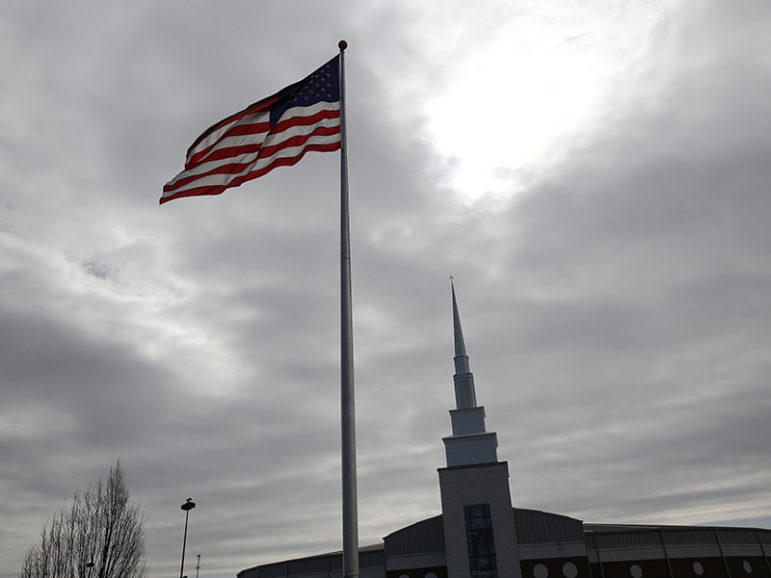(RNS) The United States is not a Christian country anymore.
That’s according to 59 percent of white evangelical Protestants recently surveyed by the Public Religion Research Institute in partnership with the Brookings Institution. And that number has jumped 11 points in just four years, from 48 percent in 2012.
Evangelicals’ growing conviction that the U.S. is losing its Christian identity, and that the country now is headed in the wrong direction, comes as politicians debate immigration and cultural change during the 2016 election season.
In the new PRRI/Brookings immigration survey tackling those issues, Americans expressed concerns about foreign influences on the American way of life. They mostly agreed that the U.S. is on the wrong track, but differed as to how to get on the right one. The survey, released Thursday (June 23), polled more than 2,600 adults between April 4 and May 2.
“When we step back and look at the big picture, we do see heightened anxieties among Americans,” PRRI CEO Robert P. Jones said in a Washington press conference announcing its findings.
While a strong majority of white evangelical Protestants agree that the U.S. has lost its Christian identity, Americans overall are split on the question — 41 percent say it was Christian and remains so, and 42 percent say it was in the past but is no longer. Relatively few (15 percent) say America never has been a Christian nation.
The white evangelical Protestant community feels its cultural dominance in America has been lost, said Henry Olsen, senior fellow at the Ethics & Public Policy Center, who attended the press conference.
“Over the last four years a growing number are seeing that it’s lost irretrievably,” he said. “That has massive implications for our politics going down the road.”
Americans also are split on whether American culture and the country’s way of life have mostly changed for the better (49 percent) or worse (50 percent) since the 1950s.
And, the PRRI/Brookings report said, “no group of Americans is more nostalgic about the 1950s than white evangelical Protestants,” with 70 percent saying the country has changed for the worse. Americans also split politically on the question: 68 percent of Republicans agree things have gotten worse, while nearly the same share of Democrats (66 percent) say times are better.
But Americans agree the country is moving in the wrong direction — a belief that crosses the political divide and has inched up from 65 percent in 2011 to 72 percent. And most (57 percent) believe they should fight for their values, even if they are at odds with the law and changing culture.
Other key findings:
- Nearly 6 in 10 Americans (57 percent) say the values of Islam are at odds with American values and its way of life. Of all major religious groups, white evangelical Protestants (74 percent) expressed the most skepticism.
- A majority (55 percent) of Americans believe that the American way of life needs to be protected against foreign influence. Of all major religious groups, white Christians — including white evangelical Protestants (76 percent), white Catholics (68 percent) and white mainline Protestants (63 percent) — are most likely to say their way of life needs protection.
- Americans are split on whether discrimination against Christians has become as big a problem in America today as discrimination against other groups. Many Christians — including 77 percent of white evangelical Protestants, 54 percent of white mainline Protestants, 53 percent of white Catholics and black Protestants and 50 percent of Hispanic Catholics — feel anti-Christian discrimination is a problem. About 8 in 10 Americans who are religiously unaffiliated (78 percent) and members of other religions (77 percent) disagree.





